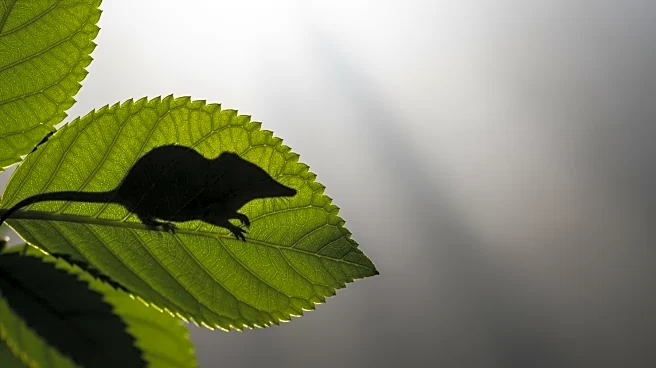What's Happening?
The Christmas Island shrew, Crocidura trichura, has been officially declared extinct, marking a significant loss for biodiversity. This small mammal, once common on Christmas Island, faced numerous threats from invasive species and habitat destruction.
Despite efforts to locate and conserve the shrew, no sightings have been reported in recent decades, leading to its classification as extinct. The shrew's disappearance highlights the ongoing challenges of preserving species in isolated ecosystems, where external factors such as introduced predators and environmental changes can have devastating impacts.
Why It's Important?
The extinction of the Christmas Island shrew serves as a stark reminder of the fragility of island ecosystems and the consequences of human activity. It underscores the urgent need for effective conservation strategies to protect vulnerable species from invasive threats and habitat loss. This event adds to Australia's record of mammal extinctions, prompting reflection on the country's environmental policies and conservation efforts. The loss of the shrew emphasizes the importance of proactive measures to safeguard biodiversity and prevent further extinctions.
What's Next?
Conservationists may use this extinction as a catalyst to advocate for stronger protections for remaining species on Christmas Island and similar ecosystems. Efforts could include stricter regulations on invasive species and increased funding for habitat restoration projects. Additionally, this event may spur international collaboration to address global biodiversity loss and develop comprehensive strategies to protect endangered species. The scientific community may also focus on studying the factors that led to the shrew's extinction to prevent similar occurrences in the future.
















